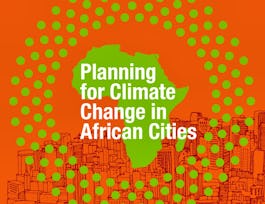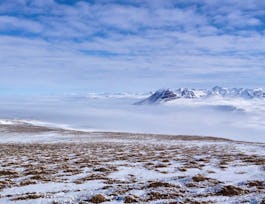Climate change is a global phenomenon, but its impacts vary among different social groups, who perceive and adapt to climate change impacts in different ways. In this course, you will:


Climate change and Indigenous People and local communities
Taught in English
Some content may not be translated
2,997 already enrolled
(36 reviews)
Skills you'll gain
Details to know

Add to your LinkedIn profile
5 quizzes
See how employees at top companies are mastering in-demand skills


Earn a career certificate
Add this credential to your LinkedIn profile, resume, or CV
Share it on social media and in your performance review

There are 6 modules in this course
This course on Climate Changes Impacts and Indigenous People and Local communities (IPLC) is divided in five different sections: 1) the first week aims to present the key notions related to climate change, and to Indigenous peoples and local communities knowledge systems. 2) the second week will show the different climate changes impacts on IPLC, at the climatic, biological, physical and human systems level. 3) the third week presents examples of coping and adaptation strategies of IPLC to climate change impacts 4) in the fourth week, different methods for data collection on local perceptions of climate change will be presented 5) the fifth week aims to give an overview on the governance in global change and the role of IPLC. Overall, this course includes a theoretical and a methodological component, through which you will learn methodologies to conduct research on Indigenous Peoples and local communities’ perceptions of climate change impacts.
What's included
1 video5 readings
In Module 1, we will explain the basic concepts of the course and present the basic paradox of research on Indigenous peoples and climate change impacts: while Indigenous Peoples minimally contribute to anthropogenic climate change, they are directly and disproportionally impacted by it. The module will also highlight the reasons why tapping in Indigenous knowledge is basic for climate change research.
What's included
7 videos7 readings1 quiz
In Module 2, we will explain the importance of understanding how climate change impacts Indigenous Peoples and local communities. IPLC are disproportionally impacted by climate change because they depend directly on the use and management of natural resources. We will also present some common approaches to assess the vulnerability of Indigenous Peoples and Local Communities to climate change impacts. Finally, this module will bring examples of how climate change impacts elements of the climatic, physical, biological and human systems, and how these impacts are perceived by Indigenous Peoples and local communities.
What's included
6 videos6 readings1 quiz
In Module 3, we describe coping and adaptive strategies that IPLC from around the word have used to respond to the impacts of climate change. After an introductory video, the module is structured around examples of the following IPLCs' responses: i) sharing and cooperation, ii) diversification, iii) exchange, iv) storage, v) forecasting, vi) rationing, vii) mobility.
What's included
8 videos10 readings1 quiz
In Module 4 we discuss IPLC contributions to climate change research and introduce a standardized methodological protocol to assess such contributions.
What's included
8 videos4 readings1 quiz
In Module 5, we discuss several reasons that describe the importance of bringing IPLC as legitimate actors in global climate policy. We also present current attempts to do so through examples from the literature and existing policy initiatives.
What's included
9 videos8 readings1 quiz
Instructors



Offered by
Recommended if you're interested in Environmental Science and Sustainability

United Cities and Local Governments of Africa

University of Colorado Boulder

Coursera Instructor Network

Coursera Instructor Network
Why people choose Coursera for their career




Learner reviews
Showing 3 of 36
36 reviews
- 5 stars
61.11%
- 4 stars
27.77%
- 3 stars
8.33%
- 2 stars
0%
- 1 star
2.77%

Open new doors with Coursera Plus
Unlimited access to 7,000+ world-class courses, hands-on projects, and job-ready certificate programs - all included in your subscription
Advance your career with an online degree
Earn a degree from world-class universities - 100% online
Join over 3,400 global companies that choose Coursera for Business
Upskill your employees to excel in the digital economy
Frequently asked questions
Access to lectures and assignments depends on your type of enrollment. If you take a course in audit mode, you will be able to see most course materials for free. To access graded assignments and to earn a Certificate, you will need to purchase the Certificate experience, during or after your audit. If you don't see the audit option:
The course may not offer an audit option. You can try a Free Trial instead, or apply for Financial Aid.
The course may offer 'Full Course, No Certificate' instead. This option lets you see all course materials, submit required assessments, and get a final grade. This also means that you will not be able to purchase a Certificate experience.
When you purchase a Certificate you get access to all course materials, including graded assignments. Upon completing the course, your electronic Certificate will be added to your Accomplishments page - from there, you can print your Certificate or add it to your LinkedIn profile. If you only want to read and view the course content, you can audit the course for free.
You will be eligible for a full refund until two weeks after your payment date, or (for courses that have just launched) until two weeks after the first session of the course begins, whichever is later. You cannot receive a refund once you’ve earned a Course Certificate, even if you complete the course within the two-week refund period. See our full refund policy.




